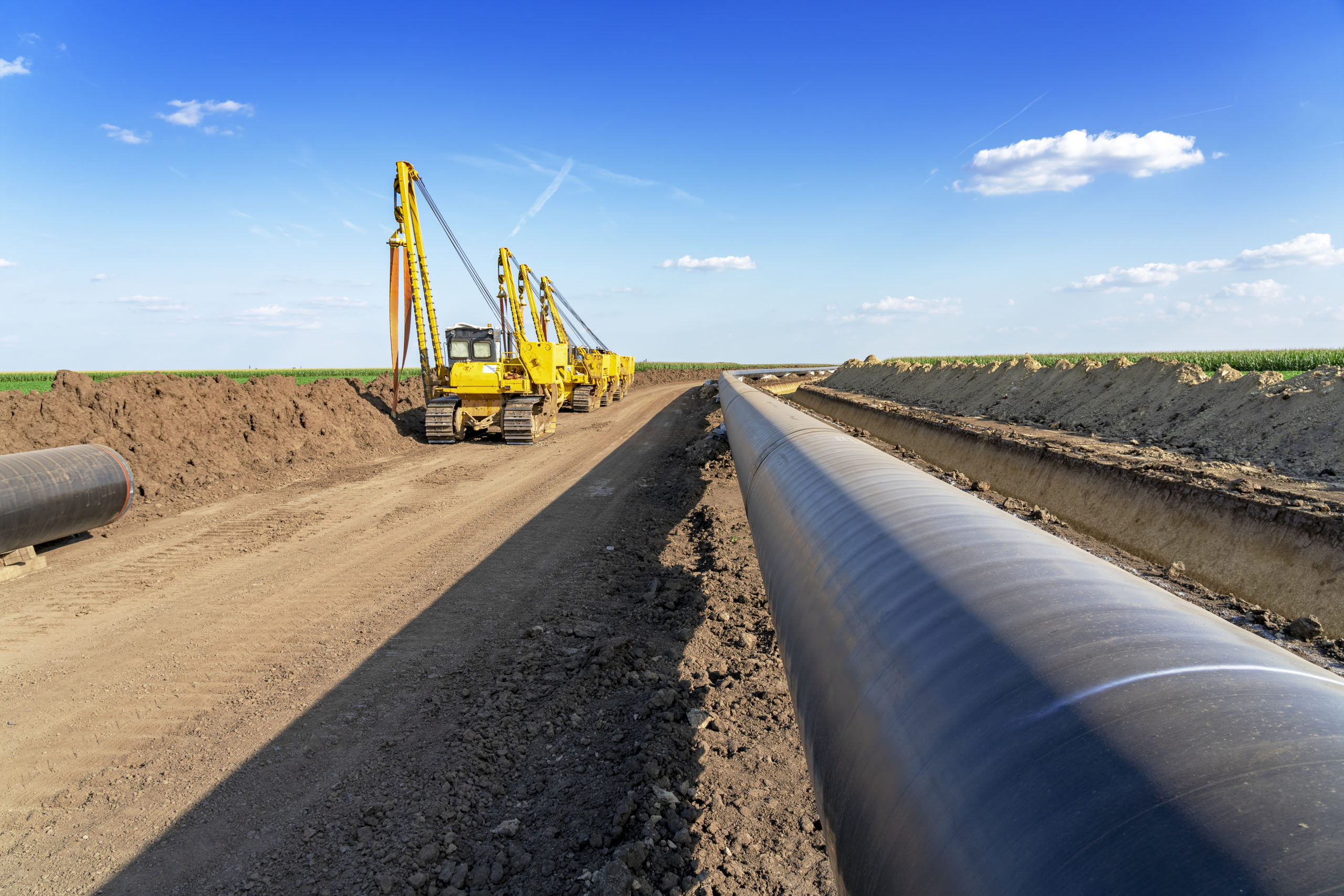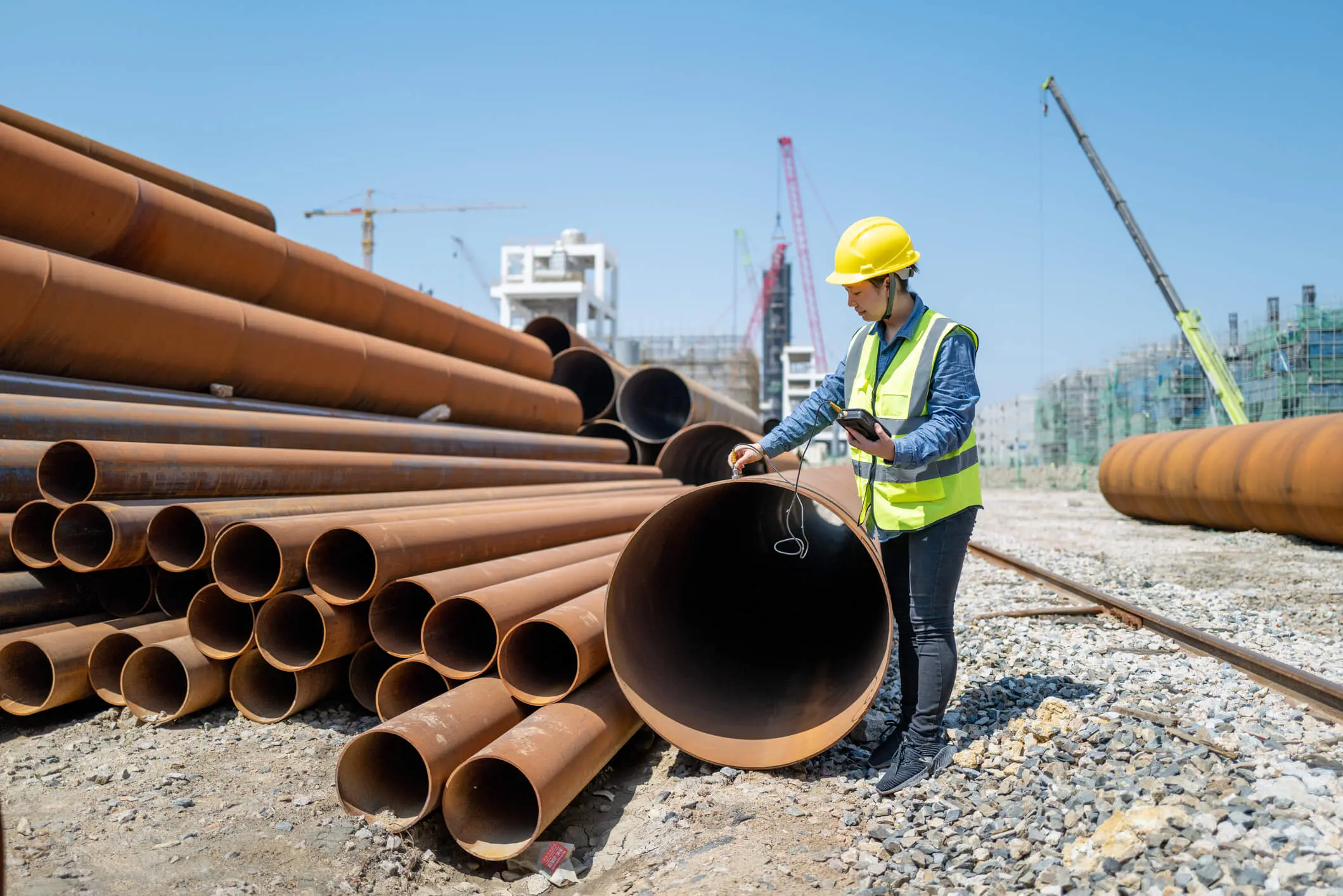A Comprehensive Overview to Comprehending Pipes and Their Role in Construction
Pipes are important elements in construction, serving important features in waste, gas, and water monitoring. Their option and application can substantially affect a building's efficiency and safety. Numerous products, such as PVC, copper, and PEX, use unique advantages matched to certain requirements (Creek Pipe Company LLC). Understanding these variables is crucial for any type of construction task. As one discovers the details of pipelines, the ramifications for conformity and public health and wellness ended up being increasingly obvious
The Significance of Pipes in Building and construction
Pipes work as necessary channels in building and construction, assisting in the movement of water, gas, and waste throughout structures and infrastructure. Their function expands beyond mere transport; they are vital for making certain the performance and safety and security of property and commercial atmospheres. Properly set up pipelines add to the reliable distribution of resources, allowing daily tasks such as cooking, heating, and showering. Furthermore, pipes play an essential duty in waste management, making sure that sewage and wastewater are properly removed from living spaces.The value of pipelines is additionally reflected in their impact on public health and wellness. Damaged or poor piping systems can bring about contamination and harmful problems, making top quality products and installment techniques necessary. In addition, pipelines have to abide with numerous building regulations and laws, which are made to shield both owners and the setting. Subsequently, the relevance of pipelines in building includes both functional performance and crucial health and wellness considerations.
Kinds Of Pipeline Used in Structure Jobs
Various kinds of pipelines play a considerable role in structure jobs, each designed to fulfill particular needs and applications. Amongst the most commonly made use of pipe kinds are PVC, which is immune and lightweight to deterioration, making it excellent for drain and vent systems. CPVC pipelines, similar to PVC, can withstand greater temperatures, often used in hot water systems. Copper pipelines are understood for their sturdiness and reliability, regularly used in plumbing and home heating applications. Galvanized steel pipelines, while less usual today, were as soon as a requirement for supply of water lines because of their toughness. In Addition, PEX (cross-linked polyethylene) pipelines are obtaining popularity for property plumbing because of their flexibility and resistance to scaling and chlorine. Lastly, cast iron pipelines are favored for their sound-dampening residential or commercial properties, generally used in waste and soil systems. Each pipe kind offers distinct functions, making sure reliable procedure in construction jobs.
Typical Products for Piping and Their Residence
In building, the selection of pipeline materials is crucial for making sure resilience and performance. Metal pipes use toughness and resistance to high pressures, while plastic pipelines provide corrosion-resistant and light-weight alternatives. Compound pipelines incorporate the advantages of both products, making them functional alternatives for numerous applications.
Metal Pipe Options
Metal pipes are indispensable parts in building and construction, offering a variety of options that deal with ecological problems and different applications. The most common materials consist of steel, copper, and cast iron. Steel pipelines are understood for their stamina and longevity, making them ideal for high-pressure applications. Copper pipelines are favored for their corrosion resistance and antimicrobial residential properties, commonly utilized in plumbing systems. Cast iron pipelines supply excellent audio insulation and are excellent for waste and water drainage systems. Each metal type has distinct benefits; as an example, galvanized steel can resist corrosion, while stainless-steel provides exceptional corrosion resistance. Picking the suitable metal pipeline depends upon factors such as price, environmental exposure, and the details demands of the construction task.

Plastic Pipeline Advantages
Plastic pipes have actually gained appeal in construction because of their light-weight nature and adaptability. These pipes, made from materials such as PVC, CPVC, and PE, deal excellent resistance to corrosion and chemical damages, making them appropriate for various applications. Their convenience of installment further improves their appeal, as they can be reduced and joined without special tools. Furthermore, plastic pipelines are typically much more affordable compared to steel options, adding to reduced overall job expenditures. Their smooth indoor surface areas decrease rubbing and boost circulation rates, while insulation homes help maintain temperature control in pipes systems - Creek Pipe Pipeline Construction. With a vast array of configurations and sizes offered, plastic pipes effectively meet the varied requirements of contemporary construction tasks
Compound Pipeline Characteristics
Composite pipelines incorporate numerous materials to utilize their specific toughness, resulting in enhanced performance and toughness. Typically, these pipes contain layers that may consist of porcelains, steels, and plastics, each adding unique buildings. For example, the inner layer may be made of a corrosion-resistant product, while the external layer offers stamina and effect resistance. This combination allows composite pipes to stand up to severe temperatures and stress, making them appropriate for a large range of applications, including supply of water and commercial processes. In addition, composite pipes are usually lighter than conventional products, helping with easier handling and installment. Their adaptability and adaptability to various atmospheres make them a preferred selection in contemporary construction jobs, guaranteeing long life and effectiveness in liquid transport systems.
Applications of Pipeline in Plumbing Solutions

Electric Avenues: The Role of Pipeline in Circuitry
In modern building, electric conduits play a crucial role in making sure the secure and efficient routing of electrical circuitry throughout structures. These pipes offer a safety path for electrical wires, securing them from physical damages and ecological factors. Different products, such as PVC, steel, and adaptable conduits, are utilized depending upon the certain demands of the installation.Furthermore, conduits help in organizing electrical wiring systems, lowering the risk of electrical risks like short circuits or fires. They likewise assist in less complicated upkeep and upgrades, as wires can be accessed and replaced without significant disruption to the structure.Proper installation of electrical channels is crucial for conformity with structure codes and safety guidelines. This organized strategy not just improves the durability of the electric system however likewise adds our website to the general safety and security and capability of the structure, making electric avenues indispensable in modern construction techniques.
Picking the Right Pipeline for Your Job
Exactly how can one ensure the best pipe option for a building and construction job? The option procedure begins with comprehending the particular demands of the project, including the sort of liquids being moved, stress ratings, and environmental conditions. Product options, such as Steel, copper, and pvc, ought to be examined based upon toughness, corrosion resistance, and thermal properties.Next, one need to consider the pipe's diameter and circulation capacity to determine efficient procedure. Regulatory criteria and codes need to also be abided by, as they dictate the appropriate materials and techniques for certain applications. Consulting with professionals and making use of substantial resources can additionally aid in making educated decisions.Finally, assessing the cost-effectiveness of numerous options is essential, balancing first expenses with long-lasting maintenance and replacement prices - Creek Pipe Company LLC. By diligently evaluating these variables, one can confidently pick the most appropriate pipe for their building and construction job, ensuring both performance and conformity

Upkeep and Assessment of Water Lines in Building
Proper option of pipelines sets the foundation for their lasting efficiency, making maintenance and inspection crucial components in building and construction. Regular upkeep guarantees that any possible concerns, such as leakages, rust, or clogs, are identified and addressed promptly, lessening costly repairs and job delays. Scheduled inspections, consisting of visual evaluations and stress tests, play an essential duty in assessing the honesty of pipe systems.Additionally, monitoring ecological factors, such as temperature variations and soil problems, can help expect damage. Utilizing innovative technologies, such as CCTV for indoor inspections, can improve the performance of maintenance initiatives. It is critical to document assessment searchings for and maintenance activities to develop an extensive background of the pipe systems. By prioritizing upkeep and inspection, building specialists can extend the life expectancy of their piping systems, ensuring they run see this here successfully and reliably throughout the job's period.
Regularly Asked Concerns
Just How Do Pipelines Affect Energy Effectiveness in Structures?
Pipelines greatly influence energy effectiveness in buildings by controling home heating and cooling down systems. Correct insulation and products lower power loss, while efficient plumbing designs reduce water usage, eventually causing reduced energy usage and functional expenses.
What Laws Govern Pipeline Setup in Building?
Laws regulating pipe setup in building and construction generally consist of nationwide and neighborhood building regulations, pipes codes, and security requirements. These assurance compliance with structural integrity, product requirements, and wellness demands, promoting safety and efficiency in building and construction techniques.
Can Water Lines Be Recycled After Use?
The question of pipeline recyclability is considerable. Numerous products, such as metal and certain plastics, can be reused efficiently. However, the problem and type of pipeline influence reusing feasibility, demanding appropriate assessment prior to disposal.
Just How Do Weather Impact Pipeline Efficiency?
Weather greatly influence pipeline performance. Extreme temperature levels can cause growth or tightening, while moisture might lead to rust. In addition, heavy precipitation can boost dirt pressure, impacting security and overall performance of the piping system.
What Are the Indicators of Pipeline Failure to Look For?
Indicators of pipe failure consist of leakages, unusual noises, staining of water, lowered water pressure, and noticeable corrosion. Regular assessments can aid spot these problems early, making certain and stopping expensive fixings system performance in the long-term. Pipes play a crucial role in waste management, making sure that sewer and wastewater are properly gotten rid of from living spaces.The importance of pipes is also reflected in their impact on public health. In construction, the choice of pipe materials is crucial for guaranteeing toughness and performance. Steel pipes provide stamina and resistance to high pressures, while plastic pipes provide corrosion-resistant and light-weight choices. In addition, pipelines are utilized to eliminate wastewater, connecting toilets, sinks, and drains pipes to metropolitan sewer systems or septic tanks.Different types of pipes, such as PVC, copper, and PEX, are picked based on variables like more info here longevity, price, and certain application demands. How can one assure the appropriate pipeline option for a building and construction job?